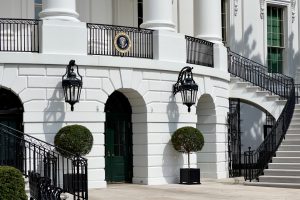On June 28, 2021, while both congressional bodies continue to introduce and consider numerous legislative proposals to “reform” and amend the existing legal analytical framework, the U.S. District Court for the District of Columbia dismissed two high-profile antitrust cases simultaneously brought by the Federal Trade Commission (FTC) and 46 states. Both cases alleged that Facebook illegally maintained a monopoly in the social networking space through its acquisition of nascent competitors, including WhatsApp and Instagram, as well as by placing restrictions on developers that access Facebook’s networks.
The key difference between the decisions is that the court granted the FTC leave to amend its complaint to better address Facebook’s alleged monopolization. Therefore, while the states’ case is finished (unless they file an appeal), the FTC retains a number of options, including trying to bolster its monopolization claim or pursuing the case through the FTC’s administrative proceedings.
Members of both political parties and from both congressional chambers condemned the decisions:
The FTC should pursue this case, but we shouldn’t count on regulators and the courts alone to save us. Keeping our markets competitive, open and fair? It will require the Congress to act.
— Amy Klobuchar (@amyklobuchar) June 29, 2021[1]
Facebook is clearly a monopoly. The district court ruling shows the need for Congress to reform the antitrust laws. Our bipartisan bills give additional resources to law enforcement agencies and brings greater scrutiny to mergers. We have to act now.
— Rep. Ken Buck (@RepKenBuck) June 29, 2021[2]
Discussion of the Decisions
The FTC and 46 states separately sued Facebook in December 2020, alleging that Facebook violated Section 2 of the Sherman Act[3] through its alleged “buy or bury” strategy of acquiring Instagram (2012) and WhatsApp (2014) and by adopting policies that prevented app developers that Facebook viewed as potential competitive threats from accessing Facebook’s platform interfaces (API Policies). The states also sought relief under Section 7 of the Clayton Act[4], which prevents acquisitions that tend to substantially lessen competition.
District Court Judge James Boasberg dismissed each case on different grounds.
The FTC Case. Judge Boasberg dismissed the FTC’s monopolization claim for a failure to plausibly allege facts that Facebook has monopoly power.[5] The FTC defined the relevant product market served by Facebook as one for “Personal Social Networking Services,” which the FTC described as “online services that enable and are used by people to maintain personal relationships and share experiences with friends, family, and other personal connections in a shared social space.”[6] The FTC alleged that Facebook held a market share “in excess of 60%,” and there were no substitutes for Facebook. The decision criticized the FTC for failing to offer any measure or metrics for this analysis and failing to name even a single Facebook competitor. The court therefore observed that “[i]t is almost as if the [FTC] expects the Court to simply nod to the conventional wisdom that Facebook is a monopolist. After all, no one who hears the title of the 2010 film ‘The Social Network’ wonders which company it is about.”[7]
The court also expressed concern with the FTC’s claims regarding Facebook’s API Policies, cautioning the FTC that generally antitrust law does not impose a duty to deal on monopolists.[8] Although the court made plain that the FTC “to be sure, has alleged several specific refusals to deal that in fact may meet [antitrust law’s] requirements” for pleading a claim, the court explained that injunctive relief is not available under Section 13(b) of the FTC Act[9] because the FTC does not allege ongoing or imminent anticompetitive conduct.[10]
The States’ Case. The states similarly premised their claims on Facebook’s alleged monopoly, but Judge Boasberg found additional grounds for dismissal with prejudice under the doctrine of laches, which does not apply to the U.S. government. More specifically, the court found that laches precluded the states’ claims because it viewed the Clayton Act’s four-year statute of limitations as “the starting presumption” for when an aggrieved plaintiff may file a complaint.[11] The court then pointed to the states having waited six and eight years, respectively, to claim that the WhatsApp and Instagram acquisitions violated antitrust laws and found “no case … in which a plaintiff other than the United States (against which laches does not apply), whether a state or a private party, was awarded equitable relief after such long post-acquisition delays in filing suit.”[12]
The court explained that laches was particularly appropriate because (1) the Instagram and WhatsApp acquisitions were widely publicized at the time; (2) it was well-understood at the time that Facebook was “the dominant player” in online social networking; (3) the FTC’s extra scrutiny of the Instagram transaction was publicized; (4) analysts had expressly commented that Facebook was acquiring WhatsApp to “eliminate[e] a potential competitor poised to mount a major challenge to Facebook’s monopoly;” and (5) significant prejudice to Facebook was apparent, given that the states sought a divestiture of longtime core Facebook assets.[13]
The attorneys general are appealing the decision.
Two Key Takeaways
- Laches Applies to Everyone Besides the US GovernmentThe court found that the United States — not the states — is the proper enforcer of the federal antitrust laws, as Congress, when passing the Clayton Act, had not articulated a special role for the states in enforcing those laws, making them akin to private plaintiffs against which equitable defenses applied.[14] Indeed, even prior to the Facebook decision, the states had tacitly admitted this, as the National Association of Attorney Generals recently urged Congress to expand the states’ role as antitrust enforcers.[15] By contrast, at no point did the court question the ability of the FTC to complain about Facebook’s acquisitions of competitors that occurred well before the Clayton Act’s four-year statute of limitations. Timing may eventually impact the FTC if it repleads its refusal to deal claim or asserts other claims based on non-acquisition conduct that is not more recent or ongoing in nature.
- The FTC’s Next Move May Implicate Chair Khan’s New PlaybookThe court criticized the FTC for making a conclusory claim of Facebook’s 60% “market share,” but also noted that it “believes that the agency may be able to ‘cure [the] deficiencies’ by repleading.” To strengthen its market power allegations, the FTC would likely need to include additional information regarding the basis of its market share calculation, allegations regarding whether Facebook’s market share remained constant or how it otherwise shifted since 2011 (the period that the FTC itself references), the identity of at least some of the other firms that account for the remaining 30-40% of the market, and proof that people value Facebook more than its social media substitutes and connect the popularity of Facebook’s social media services to the advertising dollars that popularity helps generate.
The decision may also lead the FTC to pivot under new Chair Lina Khan. Although the FTC filed the case in federal court and has advised the court that it would file an amended complaint, it also could have chosen to bring an action through its in-house administrative process, where FTC commissioners themselves would review an order from the FTC’s administrative law judge and render a decision that can be appealed to federal courts. Such a strategic decision could dovetail with the FTC’s withdrawal of its 2015 guidance on standalone use of Section 5 of the FTC Act, which prohibits “unfair methods of competition” — a broader standard than antitrust claims under Sections 1 and 2 of the Sherman Act and Section 7 of the Clayton Act.
[1] See https://t.co/P4fUeYeDMM.
[2] See https://t.co/5aO4RfuZGi.
[3] 15 U.S.C. §§ 1-7.
[4] 15 U.S.C. §§ 12-27.
[5] FTC Op. at 30-31.
[6] Id. at 21-22.
[7] Id. at 31.
[8] Id. at 39-41. Specifically, the court noted that “to be actionable, such a scheme must involve specific instances in which that policy was enforced (i) against a rival with which the monopolist had a previous course of dealing; (ii) while the monopolist kept dealing with others in the market; (iii) at a short-term profit loss, with no conceivable rationale other than driving a competitor out of business in the long run.”
[9] 15 U.S.C. § 45.
[10] FTC Op. at 42-44.
[11] States Op. at 41.
[12] Id. at 44.
[13] Id. at 44-45.
[14] Id. at 48-49.
[15] See www.stateagreport.com/news/full-slate-of-state-attorneys-general-urges-congress-to-strengthen-state-antitrust-enforcement-abilities/#page=1.

















